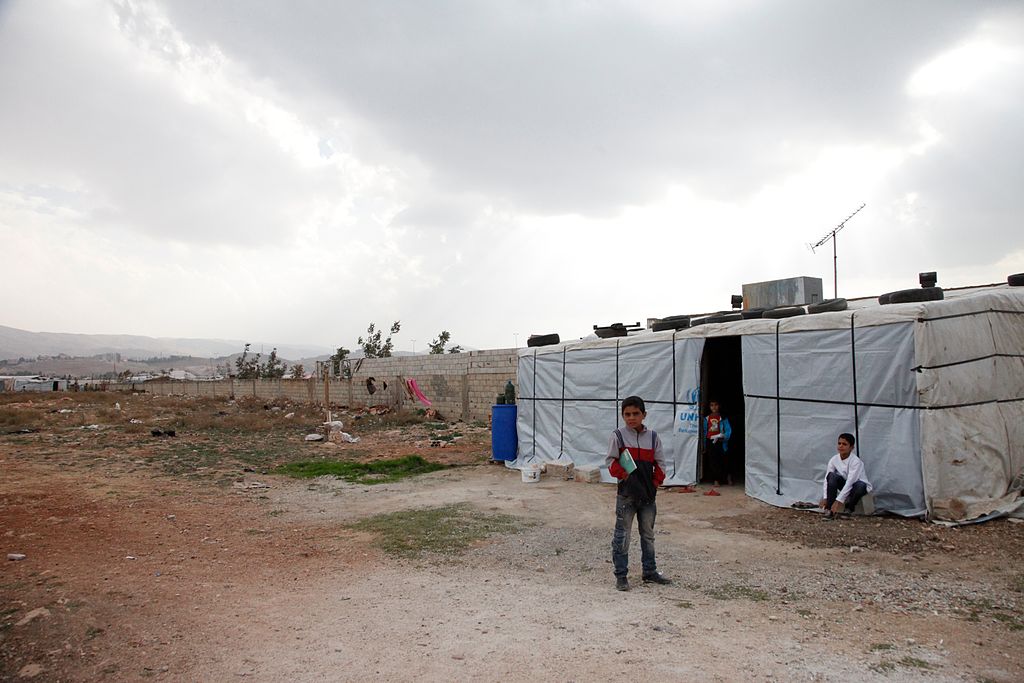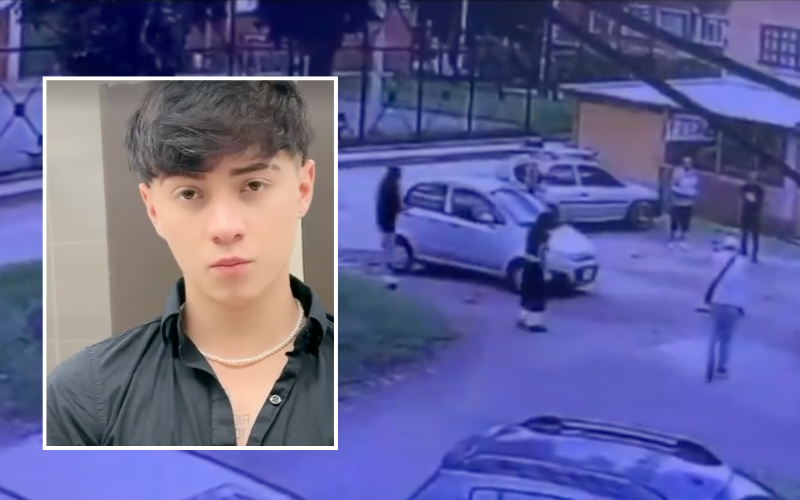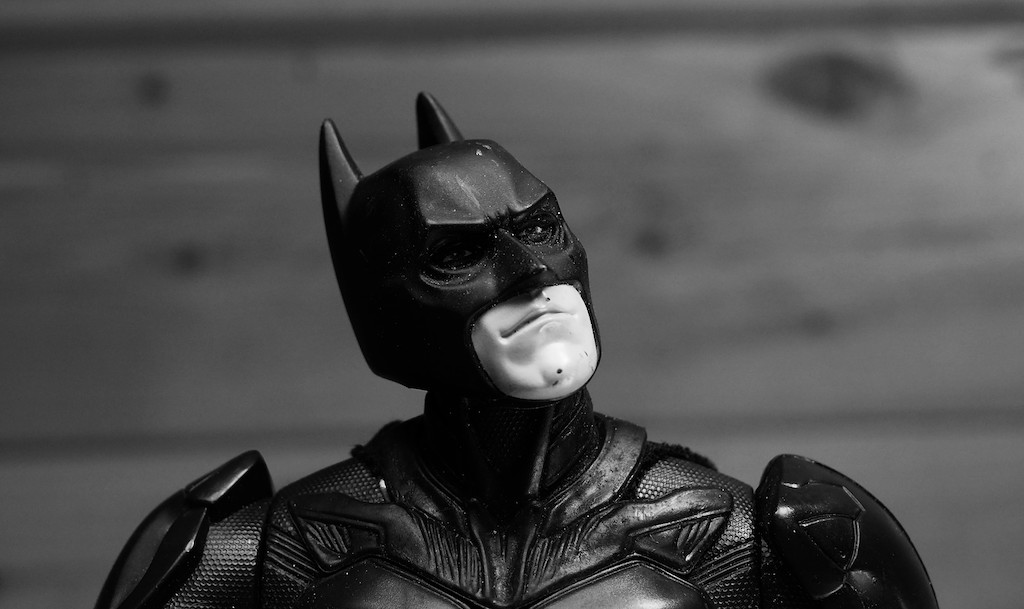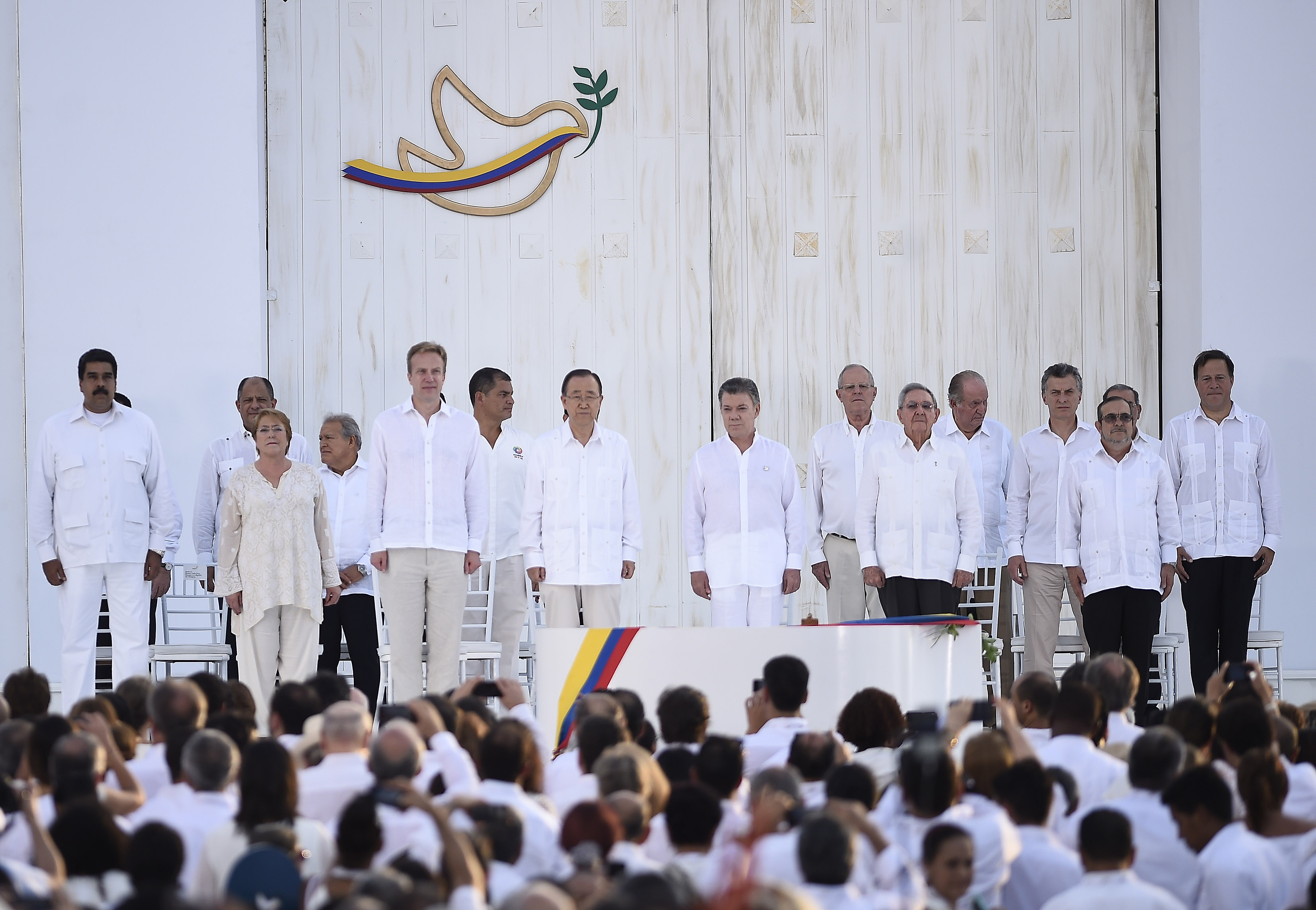The US – Colombia relationship is currently solid and bipartisan. Trump’s leadership style, Colombia’s continued status as the world’s leading exporter of cocaine, the delicate situation in Venezuela and possible changes in the political landscape of both countries in the near future could signal a shift – possibly sudden – in the political status quo. In this column, El Mohán* examines the likelihood of that happening.
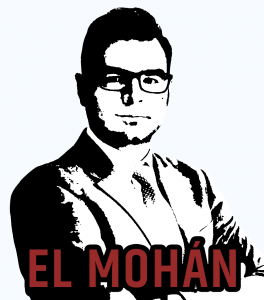 US President Donald Trump has a tendency to explode on Twitter. His online rants sometimes carry domestic and international repercussions. Last week he stunned the world with a tweet regarding his concern for the apparent increase in killings of white farmers in South Africa. The week before, again on Twitter, he announced economic tariffs against Turkey in response to the detention of an evangelical Christian pastor and made that country’s currency drop nearly 25% in a week.
US President Donald Trump has a tendency to explode on Twitter. His online rants sometimes carry domestic and international repercussions. Last week he stunned the world with a tweet regarding his concern for the apparent increase in killings of white farmers in South Africa. The week before, again on Twitter, he announced economic tariffs against Turkey in response to the detention of an evangelical Christian pastor and made that country’s currency drop nearly 25% in a week.
Colombia has not yet experienced Trump’s Twitter rage and many of us hope that we never have to. However, what are things that could provoke Trump to tweet against Colombia announcing sudden policy shifts?
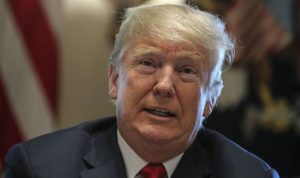
US President Donald Trump. Photo courtesy of Wiki Commons.
Drugs, drugs, drugs
Perhaps the preeminent issue on the US-Colombia agenda is drugs. The fact that Colombia continues to be the world’s largest source of cocaine and the fixation on US authorities that this problem is driven by excess supply makes it a priority within the bilateral relation. According to US authorities, nearly 90% of the cocaine that enters the US can trace its origins to Colombia. Moreover, US authorities estimate that in the past couple of years there has been a significant growth in coca cultivation in Colombia from 78,000 hectares in 2012, to a whopping 209,000 hectares in 2017.
Here’s the story of #Colombia coca cultivation and eradication over the past 24 years, in one frustrating chart. (The UN 2017 coca estimate is unofficial, as reported in local media.) pic.twitter.com/H1iO6OUgyl
— Adam Isacson (@adam_wola) 25 June 2018
In September 2017, Trump threatened – in a statement, not a tweet – to decertify Colombia because of the extraordinary growth of coca cultivation. What made him hesitate from following through with the threat was the close military relationship between the two countries and joint efforts to interdict cocaine flows to Central America and the US. Trump warned then that decertification would remain a US policy option if the trends were not reversed.
Almost a year later the trend has still not reversed, but now there’s a new sheriff in town. Newly sworn-in President Iván Duque has promised to be tough on drugs by reinstating aerial fumigation and greater penalties for drug trafficking and cultivation. This is music to Trump’s ears and will likely buy Colombia some time to get busy. However, a significant reduction on drug cultivation in Colombia is not likely in the near future and Trump is not known for his strategic patience on policy matters. The onus will be on Duque to produce quick results, or at least make more noise about the country’s increased measures to avoid Trump’s invocation of great vengeance and furious anger to those who would attempt to poison his people with drugs (please tell me you got the Pulp Fiction reference).
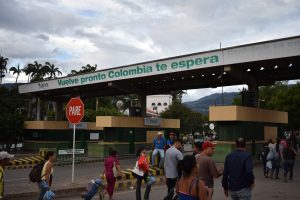
Colombia-Venezuela border. Thousands make the daily journey across Simon Bolivar Bridge in the hopes of finding a better life. Photo by Arjun Harindranath
Venezuela
The economic and humanitarian disaster that is Venezuela hasn’t escaped Trump’s attention either. He has been a strong advocate for the Venezuelan people and against the Maduro regime and has been adamant that the US has all options on the table when it comes to removing the government. He has sent envoys to the region, including Vice-President Mike Pence, UN Ambassador Nikki Haley, and Defense Secretary James Mattis, to get a sense of the sentiment other Latin American leaders would have towards US intervention in Venezuela. Repeatedly, his envoys have returned to the US empty-handed, as many South American presidents have been vocal about their stance against a military intervention and cautioned the US to use diplomacy against Maduro.
Trump’s patience on Venezuela is also likely to wear thin as the downtrodden nation’s fortunes continue to deteriorate. Venezuelan President Nicolás Maduro, who will continue to taunt Trump, will become increasingly irritating for Trump, as well as a negligently oversee the increase in Venezuelan migrants to the US through Colombia and Central America. These actions are likely to prompt Trump to be more vocal on the situation on Venezuela and put pressure on regional allies, namely Colombia, to do more.
Trump is likely to accuse Duque of being too lenient and even weak on Venezuela, demanding more forceful action by the young president. This would probably imply more military aid or even a demand in a redirection of much needed funds for rural sustainable development to service the needs of Venezuelan migrants to Colombia. Fortunately, US advisors have opted instead for other measures including the unilateral increase of funds for migrants and the deployment of hospital ship USNS Comfort to attend to Venezuelans in Colombia. Though these measures temporarily alleviate the situation, Trump will want to see results on Venezuela and will press Colombia – on Twitter or elsewhere – to follow suit.
“Throughout his term Trump has shown a penchant for scolding his allies and wooing his enemies.” – El Mohán
Domestic policies
As the Mueller investigation into Russian influence in the 2016 election presses on, the US Congressional midterm elections draw near, and Trump feels increasingly vulnerable to international events he will likely feel the need to portray strength.
Throughout his term Trump has shown a penchant for scolding his allies and wooing his enemies. This includes scoffing at North American and EU partners and building ties with geopolitical adversaries including Russia and North Korea.
The composition of the US Congress and the traditionally bipartisan relationship that Colombia has carved in Washington, make this unlikely. However, Duque and Uribe have ill-advisedly ignored the Democrats as part of their political platform and leaned on Republican support. This has been beneficial with a Republican-dominated Congress and White House. However a change in the midterm elections could prompt a reconfiguration of that traditional bipartisan affinity of the US-Colombia relationship.
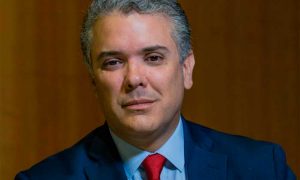
Colombian President Ivan Duque Photo: Presidencia.gov.co
A plague on both your houses
A deterioration in the US-Colombia relationship is unlikely at this point. However, should Trump feel weak internally, he may be inclined to demonstrate decisiveness and strength in the international stage. If the timing is wrong and a domestic issue coincides with a crisis in Venezuela or a drug-trafficking related event, Trump could use the political moment and 280 characters to potentially inflict some serious damage on Colombia-US relations.
Sergio Guzmán is a freelance political risk consultant based in Bogotá. Follow him on twitter @serguzes
This opinion column is intended as a space to discuss some of the most pressing issues faced by Colombia and the region in these uncertain times. All opinions and content are solely the opinion of the author and do not represent the viewpoints of The Bogotá Post.
*El Mohán is a Colombian mythological figure. He is described as a hairy humanoid figure associated with natural forces such as great rivers and the mysteries lying within the forests. It is said, El Mohán was a shaman who had an anticipated vision of the arrival of the Spanish conquerors and the terrors they brought along.

